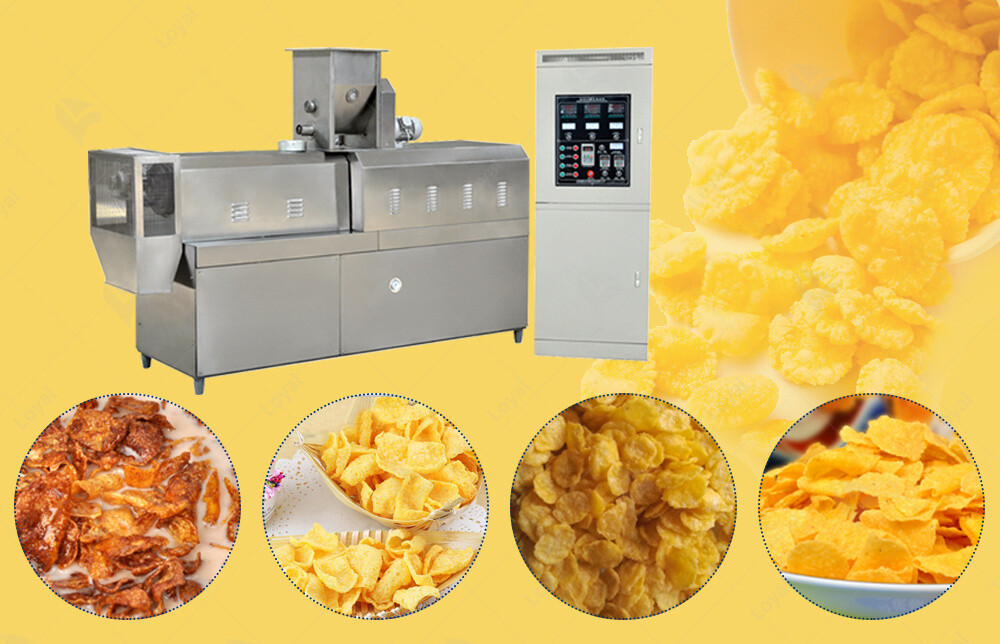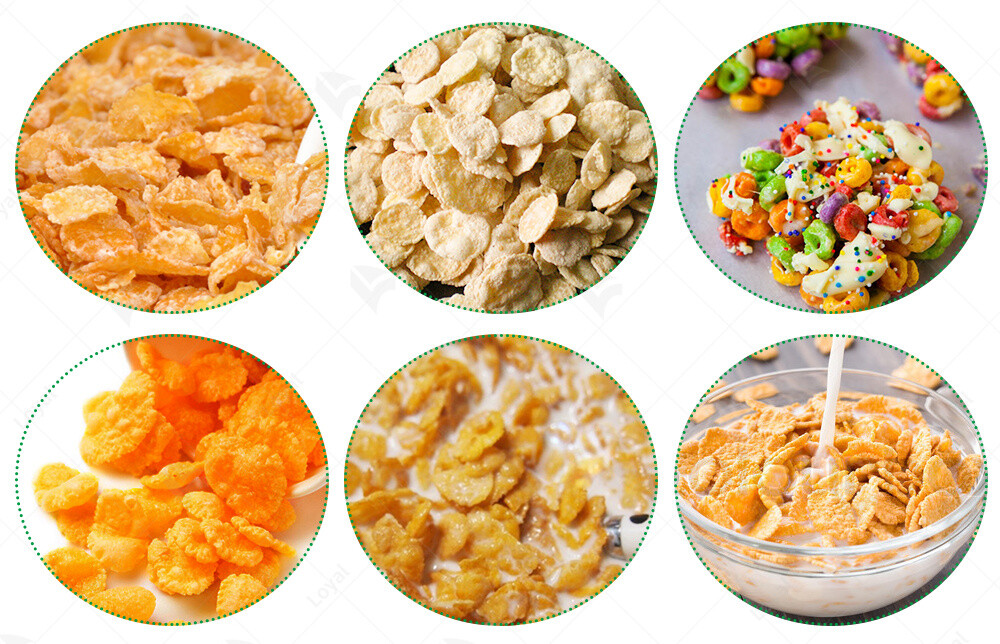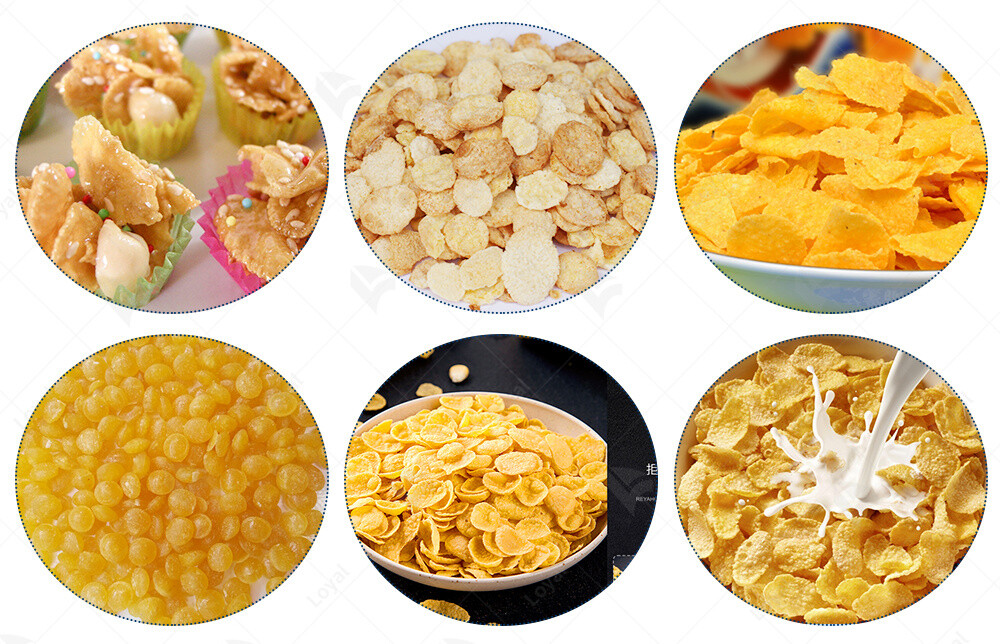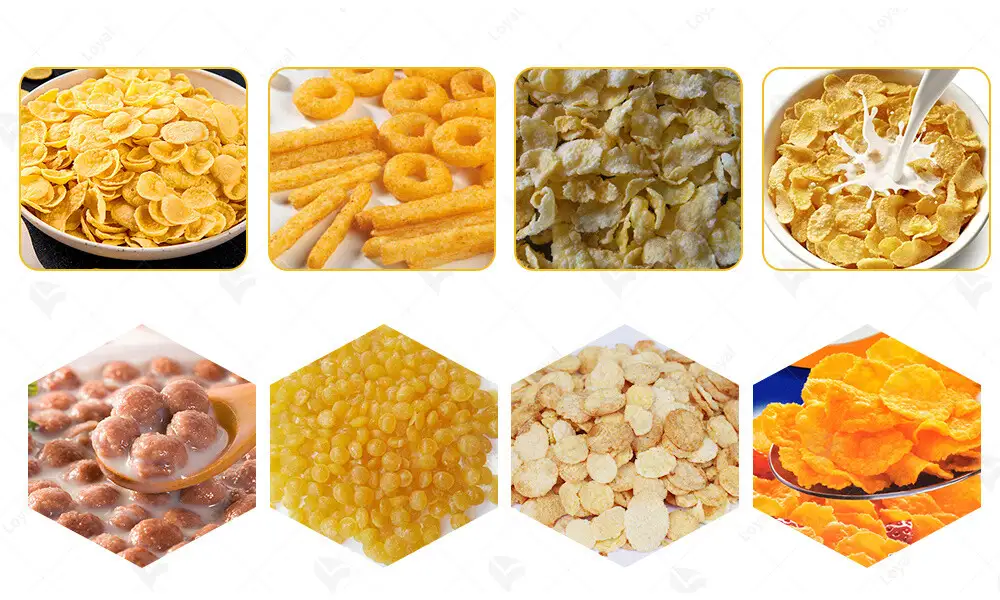The Ultimate cereal making machine Guide to 2024
Introduction to Cereal Making Machines
Cereal making machines play a pivotal role in the production of breakfast cereals, a staple in many households around the world. These machines are designed to handle various stages of cereal production, from mixing and cooking to shaping and drying. They ensure consistency and quality in the final product, meeting the high standards set by manufacturers and consumers alike. With advancements in technology, modern cereal making machines are more efficient and versatile, capable of producing a wide range of cereal types and textures.
The importance of cereal making machines cannot be overstated in the industrial food machinery sector. They streamline the production process, significantly reducing the time and labor required to produce large quantities of cereal. This efficiency translates to lower production costs and increased profitability for manufacturers. Additionally, cereal making machines are equipped with advanced control systems that allow for precise adjustments to temperature, pressure, and other parameters, ensuring optimal cooking and shaping conditions.
Choosing the right cereal making machine is crucial for any cereal manufacturer. Factors to consider include the type of cereal being produced, the production capacity required, and the specific features of the machine. For example, some machines are designed specifically for flake cereals, while others may be better suited for puffed or extruded cereals. Understanding the capabilities and limitations of different cereal making machines can help manufacturers make informed decisions that align with their production goals.
Maintenance and regular servicing of cereal making machines are essential to ensure their longevity and optimal performance. Routine checks and timely repairs can prevent unexpected breakdowns and production delays. Manufacturers should also keep abreast of the latest developments in cereal making technology, as continuous improvements and innovations can offer new opportunities for enhancing product quality and production efficiency. By investing in the right cereal making machine and maintaining it properly, manufacturers can stay competitive in the ever-evolving cereal market.

Key Features of Modern Cereal Making Machines
| Feature | Description |
| Automation | Modern cereal making machines are highly automated, reducing manual labor and increasing efficiency. |
| Energy Efficiency | These machines are designed to consume less energy, making the production process more cost-effective and environmentally friendly. |
| Versatility | Cereal making machines can produce various types of cereals, including flakes, puffs, and granola, offering flexibility to manufacturers. |
| High Output Capacity | Advanced machines have a high production capacity, allowing manufacturers to meet large-scale demands efficiently. |
| Precision and Consistency | These machines ensure precise mixing, cooking, and forming, resulting in consistent quality of cereal products. |
| Ease of Maintenance | Modern cereal making machines are designed for easy maintenance, with accessible parts and straightforward cleaning processes. |
| Hygiene and Safety | High standards of hygiene and safety are maintained in these machines, ensuring the production of safe and sanitary food products. |
| Advanced Control Systems | Equipped with advanced control systems, these machines allow for precise monitoring and adjustment of various parameters, ensuring optimal production conditions. |
| Durability | Built with high-quality materials, modern cereal making machines are durable and long-lasting, reducing the need for frequent replacements. |
| Customization Options | Manufacturers can customize the machines to meet specific production requirements, offering flexibility in terms of design and functionality. |
| Technology Integration | Integration of the latest technology, such as IoT and AI, enhances the efficiency and functionality of cereal making machines, enabling real-time monitoring and predictive maintenance. |
| Environmental Compliance | Modern cereal making machines are designed to comply with environmental regulations, minimizing their impact on the environment. |

Benefits of Using Advanced Cereal Making Machines
Advanced cereal making machines offer numerous benefits that significantly enhance production efficiency and product quality in the food industry. These machines are designed with cutting-edge technology that ensures precise control over the production process. As a result, manufacturers can achieve consistent product quality, which is crucial for maintaining customer satisfaction and brand reputation. The use of an advanced cereal making machine allows for better automation and reduces the need for manual intervention, thereby minimizing human error and increasing overall productivity.
One of the primary advantages of using an advanced cereal making machine is the ability to produce cereals with uniform texture and shape. This consistency is achieved through the machine's precise control over factors such as temperature, pressure, and mixing speed. Such control not only ensures that each batch meets the desired standards but also reduces waste by minimizing defective products. Additionally, these machines are equipped with features that allow for easy customization of cereal recipes, enabling manufacturers to innovate and diversify their product offerings.
Another significant benefit of advanced cereal making machines is their energy efficiency. These machines are designed to optimize energy consumption, which not only lowers operational costs but also reduces the environmental impact of the production process. The incorporation of energy-efficient components and technologies in these machines helps in achieving sustainable production goals. Moreover, advanced cereal making machines often come with automated cleaning systems that reduce downtime and ensure hygienic production conditions, further contributing to operational efficiency.
Incorporating an advanced cereal making machine into the production line also enhances safety for workers. These machines are equipped with safety features such as automatic shutdown in case of malfunction, protective enclosures, and user-friendly interfaces that minimize the risk of accidents. By reducing the need for manual handling of hot or heavy materials, these machines help create a safer working environment. Overall, the benefits of using advanced cereal making machines are manifold, making them an indispensable asset in the modern food manufacturing industry.

Types of Cereal Making Machines in the Market
| Subheading | Content |
| Introduction | The cereal making machine industry offers various types of equipment designed to meet different production needs. These machines are essential for producing high-quality cereal products efficiently. |
| Extrusion Machines | Extrusion machines are widely used in the cereal industry. They work by forcing the raw materials through a die to create specific shapes and textures. These machines are versatile and can produce a variety of cereal products. |
| Flaking Machines | Flaking machines are specifically designed to produce flaked cereals. They work by pressing cooked grains between two large rollers to create thin, crisp flakes. This type of cereal making machine is crucial for producing products like cornflakes. |
| Mixing Machines | Mixing machines are used to blend various ingredients before the extrusion or cooking process. They ensure that all components are evenly distributed, which is essential for consistent product quality. |
| Drying Machines | Drying machines remove moisture from cereal products to enhance shelf life and ensure the desired texture. These machines use heat and airflow to dry the cereals evenly and efficiently. |
| Coating Machines | Coating machines add flavors, vitamins, or minerals to cereal products. They work by applying a fine mist of coating solution onto the cereals, which are then dried to ensure the coating adheres properly. |
| Baking Machines | Baking machines are used for cereals that require a baking process to achieve the desired texture and flavor. These machines provide controlled heat to bake the cereals evenly. |
| Packaging Machines | Packaging machines are essential for the final stage of cereal production. They ensure that the cereals are packed efficiently and hygienically, maintaining product quality during storage and transportation. |
| Advanced Automation Systems | Advanced automation systems integrate various cereal making machines into a single, streamlined process. These systems enhance production efficiency and reduce manual labor. |
| Conclusion | Choosing the right type of cereal making machine is crucial for achieving high-quality products and efficient production. Understanding the different types available can help manufacturers make informed decisions. |

Common Issues and Troubleshooting for Cereal Making Machines
Cereal making machines, integral to the industrial food machinery sector, encounter several common issues during operation. These issues can disrupt production schedules and affect product quality if not promptly addressed. Here are the key problems and troubleshooting methods associated with cereal making machines:
Ingredient dispersion issues are prevalent in cereal making machines, impacting product consistency. This problem often arises due to improper mixing or feeder malfunctions. To troubleshoot, operators should inspect and calibrate feeders regularly. Ensuring proper alignment and adjusting mixer settings can enhance ingredient distribution.
Cutting blades in cereal making machines can experience excessive wear over time, affecting cutting precision and product quality. This issue commonly results from inadequate maintenance or using blades beyond their recommended lifespan. Operators should replace worn blades promptly and adhere to scheduled maintenance routines to mitigate this issue.
Temperature fluctuations during cereal production can lead to inconsistent product texture and quality. These fluctuations may occur due to heating element malfunctions or inadequate temperature control systems. Troubleshooting involves checking sensor accuracy, ensuring proper insulation, and recalibrating temperature controls as necessary to maintain optimal processing conditions.
Mechanical jamming is another frequent issue encountered in cereal making machines, often caused by foreign objects or ingredient clumping. Operators should implement regular cleaning protocols and inspect machinery components for debris. Clearing blockages promptly and adjusting conveyor speeds can prevent mechanical jamming and ensure uninterrupted production.
Addressing these common issues promptly through systematic troubleshooting and preventive maintenance is crucial for maximizing the efficiency and reliability of cereal making machines in industrial settings.

Future Trends in Cereal Making Machine Technology
In recent years, the landscape of cereal making machines has been evolving rapidly, driven by technological advancements and shifting consumer preferences. One prominent trend expected to shape the future of cereal making machines is the integration of smart technologies. These machines are likely to incorporate IoT (Internet of Things) capabilities, enabling real-time monitoring and control of production processes. Such advancements not only enhance operational efficiency but also ensure consistent product quality, meeting the stringent demands of modern consumers.
Another key trend on the horizon is the emphasis on sustainability within cereal making machines. Manufacturers are increasingly focusing on reducing energy consumption and optimizing resource utilization. This trend aligns with global efforts towards environmental sustainability and enhances the overall eco-friendliness of cereal production processes. Additionally, advancements in materials science are anticipated to play a pivotal role in the future of cereal making machines. Innovations in materials, such as the use of advanced composites and food-grade plastics, promise enhanced durability, sanitation, and ease of maintenance for these machines.
Furthermore, automation is set to revolutionize cereal making processes in the coming years. Robotic systems and AI (Artificial Intelligence) algorithms will likely be integrated into cereal making machines, automating complex tasks such as ingredient mixing, temperature control, and packaging. This automation not only improves production efficiency but also reduces labor costs and human error, making cereal production more reliable and scalable.
The future of cereal making machine technology is poised for significant advancements driven by smart technologies, sustainability initiatives, materials innovation, and automation. These trends promise to redefine the landscape of cereal production, offering manufacturers new opportunities to enhance productivity, quality, and environmental stewardship.

Innovations and Improvements in Cereal Making Machines
Cereal making machines have seen significant innovations and improvements over recent years, revolutionizing the way cereals are produced. One notable innovation is the integration of advanced automation technologies. These technologies allow for precise control over the production process, resulting in consistent product quality. Additionally, automation reduces the need for manual labor, increasing efficiency and reducing production costs. The use of sensors and real-time data analytics in cereal making machines has also improved the ability to monitor and adjust various parameters, ensuring optimal performance and minimizing waste.
Another major improvement in cereal making machines is the development of energy-efficient models. Modern machines are designed to consume less energy while maintaining high output levels. This not only helps in reducing operational costs but also aligns with the global push towards sustainable manufacturing practices. Manufacturers are now incorporating energy-saving components and optimizing machine designs to minimize energy consumption without compromising on the quality of the cereals produced. These advancements contribute to a more sustainable and eco-friendly cereal production process.
The incorporation of advanced materials and components in cereal making machines has also led to significant improvements. High-quality stainless steel and food-grade materials are now commonly used to enhance durability and hygiene. These materials are resistant to corrosion and wear, ensuring that the machines have a longer lifespan and require less maintenance. Furthermore, the use of modular components allows for easy replacement and upgrades, making it possible to adapt the machines to new production requirements and technological advancements.
Finally, there has been a noticeable improvement in the user-friendliness of cereal making machines. Modern machines come with intuitive control panels and user interfaces, making them easier to operate and manage. Manufacturers provide comprehensive training and support to ensure that operators can efficiently handle the machines. Additionally, the integration of smart technologies enables remote monitoring and troubleshooting, reducing downtime and enhancing overall productivity. These user-centric improvements make cereal making machines more accessible and efficient for food production businesses.
References
1.Food Processing Technology-https://www.foodprocessing-technology.com
2. ProFood World-https://www.profoodworld.com
3. Food Engineering-https://www.foodengineeringmag.com
4. Food Manufacturing-https://www.foodmanufacturing.com
5. eat and Control-https://www.heatandcontrol.com












